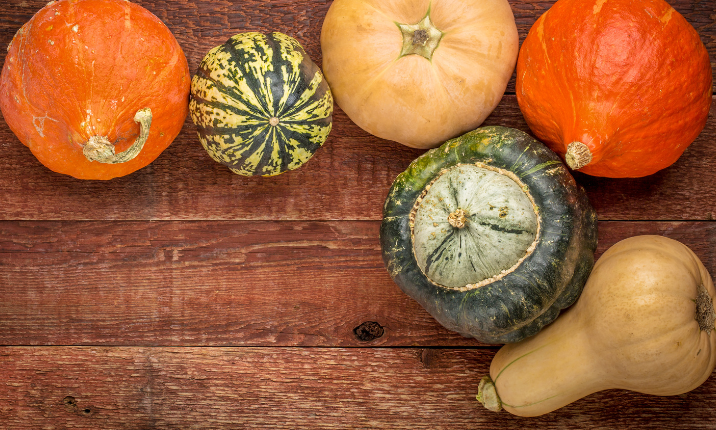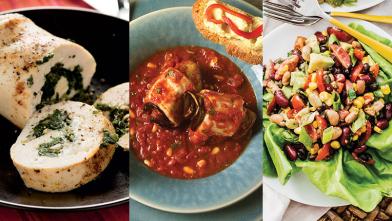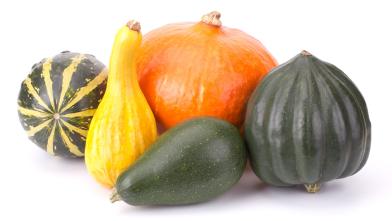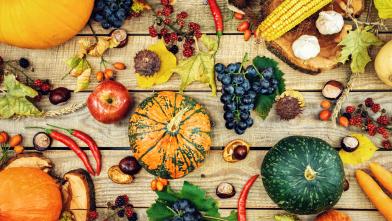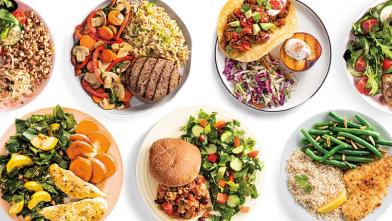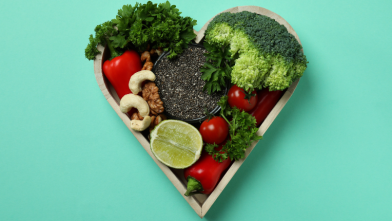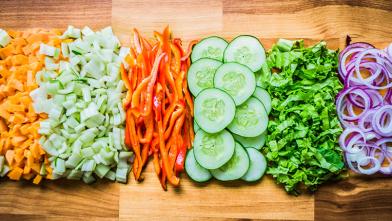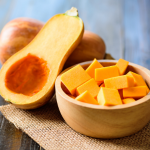
The multitude of varieties can be overwhelming, especially knowing how to prepare them. Check out this list of the 8 winter squash you’re most likely to find in the store, and some ideas on how to prepare them.

Butternut: These are long with a bulbous end and a smooth tan skin. Because the skin is a little thick, you’ll want to peel them before cutting into chunks or dicing. Or, you can cut them lengthwise, remove the seeds, and roast them in the skin if to scoop out the flesh. Put these tips to action with this Butternut Squash and Kale Soup.
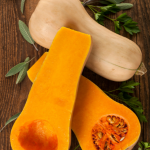
Honeynut: This is a smaller, sweeter version of the butternut with deeper orange flesh. It is about half the size of a butternut squash and a hybrid of butternut and buttercup squash. They are excellent when roasted with lots of herbs (think sage, thyme, rosemary), garlic, and just a bit of parmesan cheese.
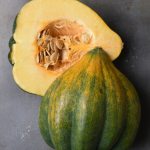
Acorn: Don't let the name fool you, this squash is not for the squirrels! You’ll love this sweet, petite green squash. Keep the skin on and slice into circles to grill or roast, Alternatively, you can slice in half lengthwise to stuff like these Stuffed Acorn Squash.
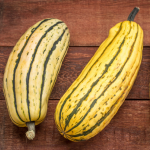
Delicata: These oblong squash are cream colored and have either green or yellow stripes. They are sweet and a perfect way to enjoy squash since they’re so easy to prepare. They can be sautéed, steamed, roasted, grilled, baked, or stuffed.
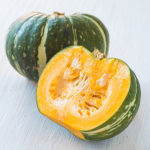
Green kabocha: These Japanese pumpkins are dense and sweet and usually deep green in color. Roast and turn them into soup with ginger, cumin, coriander, and garlic. Or slice and roast with olive oil, fresh ginger, thyme, and a little nutmeg.
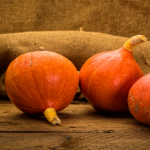
Red kuri: Also called Hokkaido pumpkins, these little orange squash have a slight chestnut flavor, making them perfect for stews or side dishes in which they’re paired with other root veggies and some greens. Consider adding red kuri squash to this dish with fregola sarda and tahini dressing.
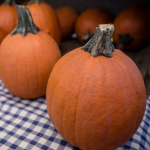
Sugar pumpkin: Unlike the larger jack-o-lantern pumpkins, sugar pumpkins are sweet and dense. They’re the pie pumpkin, but just as delicious for stews, stuffed, or soup. Give this Slow Cooker Pork and Pumpkin Stew a try for a warming weeknight meal.
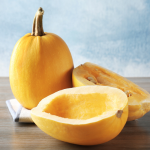
Spaghetti: You’d never guess from its exterior that you can make a low-carb “pasta” with this squash. Halve it and bake, scoop out the seeds, then use a fork to scrape the flesh into strands. They’re like a blank canvas in terms of flavor so be creative in saucing them. You can go for the classic Spaghetti Squash with Light Marinara Sauce or go for more international flavor with a Spaghetti Squash “Ramen” Noodle Bowl.
All winter squash can be steamed, roasted, braised, sautéed, grilled, or turned into soup. You can also cook them together. Squash can take strong seasoning, so use your imagination to come up with bold herbs, spices, and condiments. And don’t forget to clean and roast the seeds to snack on or garnish soups, salads, and other dishes.
If you are still feeling a little overwhelmed by squash, check out the pre-cut produce section of your grocery store! Many stores offer precut squash ready to go. You can also check the freezer section for different types and cuts of different squash.
